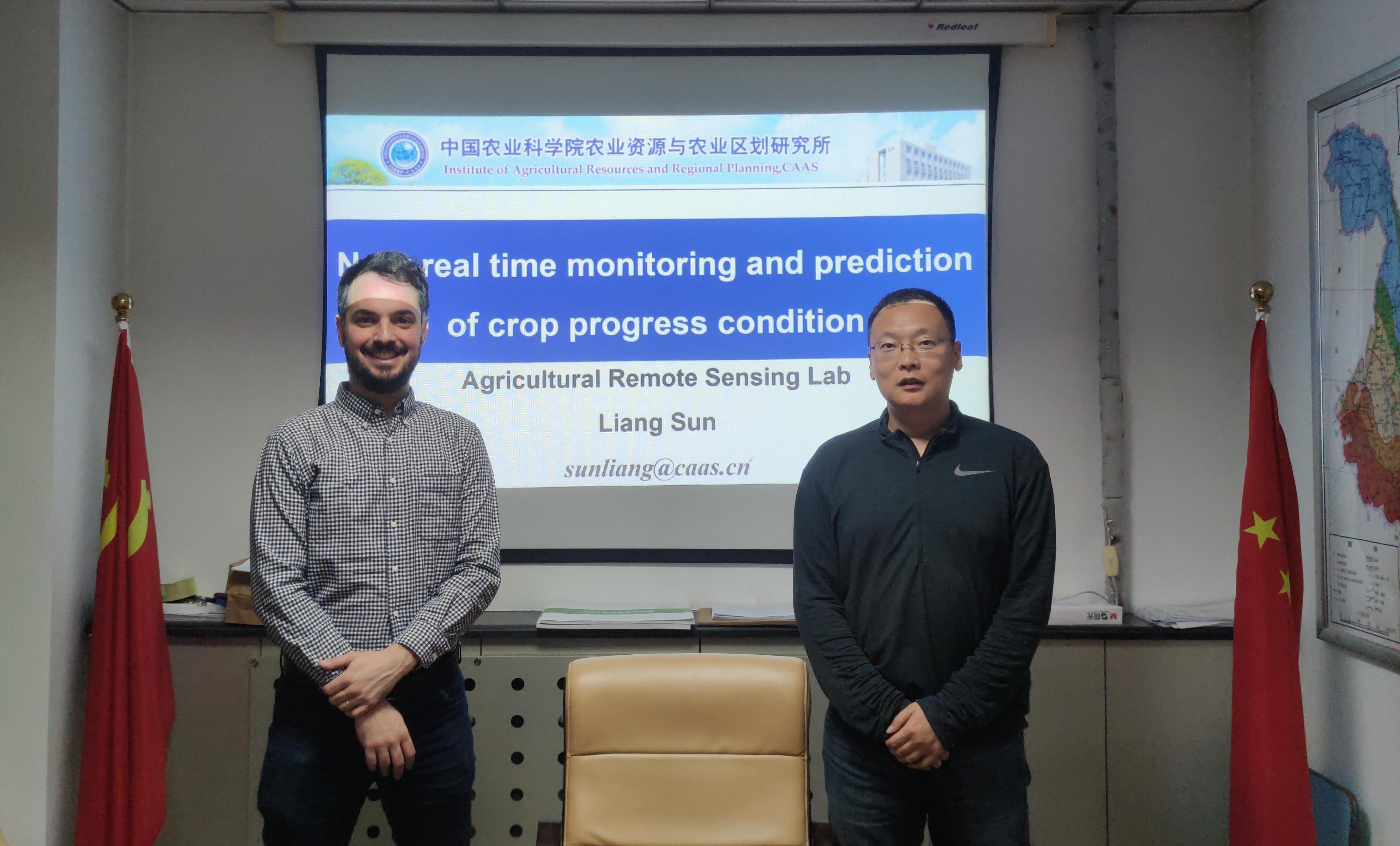From Mentor to Friend: A Brazilian Researcher's Tale

Luis Crusiol (left) and his mentor Professor Sun Liang at the Chinese Academy of Agricultural Sciences.
(COURTESY PHOTO)
"Friend! That is the first word!"
Luis Crusiol, a visiting researcher at Embrapa Soja (an institution developing technologies for soybean production in Brazil), told Science and Technology Daily about his close connection with his mentor Professor Sun Liang at the Chinese Academy of Agricultural Sciences (CAAS).
Crusiol began his almost three-year journey to China in 2019 when he got an opportunity to work in Sun's lab. He was able to enhance his professional skills based on technical knowledge, and gained much experience about how to cooperate with colleagues from other countries, navigating different approaches to managing research challenges.
Dealing with differences
Living and working in China is not easy for Crusiol due to cultural differences. He said the language was one of the most difficult aspects, especially when he could not read and write Chinese characters. But he believes exploring cultural differences is never a barrier and can enrich his life experiences. "The secret of dealing with the differences is learning how to respect the differences and enjoy them as much as you can!" Crusiol said.
He also noted that the academic environment in Brazil and China are both similar and different. Researchers from the two countries are committed to scientific development and seek scientific improvements that contribute to the social and economic development. At the same time, they have differences in personal interactions and behavior when under work stress.
However, Crusiol said that he was able to enjoy a welcoming and friendly environment that motivated him to work hard in his research activities. This was due to Sun and his Chinese colleagues, who were always concerned about his smooth adaptation at CAAS.
Mutual respect key to cooperation
While in China, Crusiol worked with his Chinese colleagues to exchange knowledge and skills for crop monitoring using field data and connecting this dataset with UAV (unmanned aerial vehicle) and satellite data.
Having accumulated extensive experience with a ground-based spectrometer, Crusiol was willing to share expertise and help his Chinese counterparts operate the device. "This was very helpful as our team members were not yet so skilled at using the spectrometer, " Sun said.
Meanwhile, Sun helped him analyze the collected satellite remote sensing data and build models to identify problems and solutions. "Sun always gave me space to contribute in the research from his laboratory and encouraged me to think out of the box," Crusiol said. "When you trust each other working on a project, you can reach better results and transform this professional network into a friendship," he said.
They co-authored to broaden the scope of their study so that their analysis results could be helpful for soybean yield estimation and drought resistance evaluation. The pair have published dozens of papers in leading international science journals.
Mutual respect and being considerate could be the secret to their strong bond. "We always communicate with each other when holding different opinions on research," said Sun, who had studied abroad and knows the significance of cross-cultural exchanges. "I offer suggestions, but most importantly, I respect his way of thinking and his way of tackling problems."
Sun emphasized that understanding the way others think and putting yourself in their shoes is the right way to avoid cultural misunderstandings.
"The professional achievements at CAAS deeply complemented the research we were doing in Brazil at that time," Crusiol said. "Returning to Brazil, I have the opportunity of applying the research skills I acquired in China in my daily research activities, and most importantly, we keep cooperating and learning from each other."
Crusiol said cooperation for scientific goals should be constructed among all nations that share equal values and similar goals. "The knowledge and technologies from this cooperation may help other nations reach their sustainable development goals," he added.






